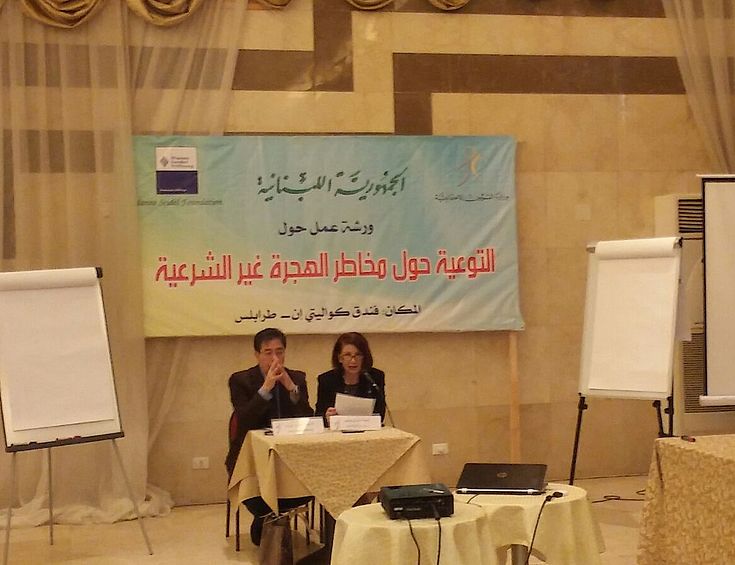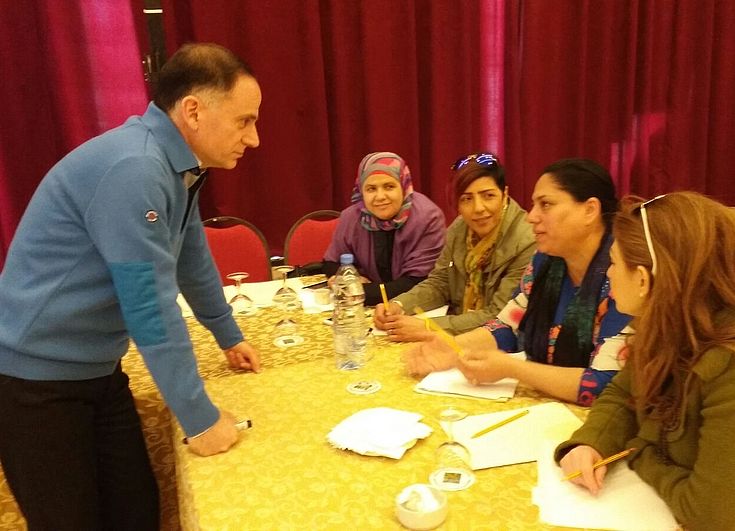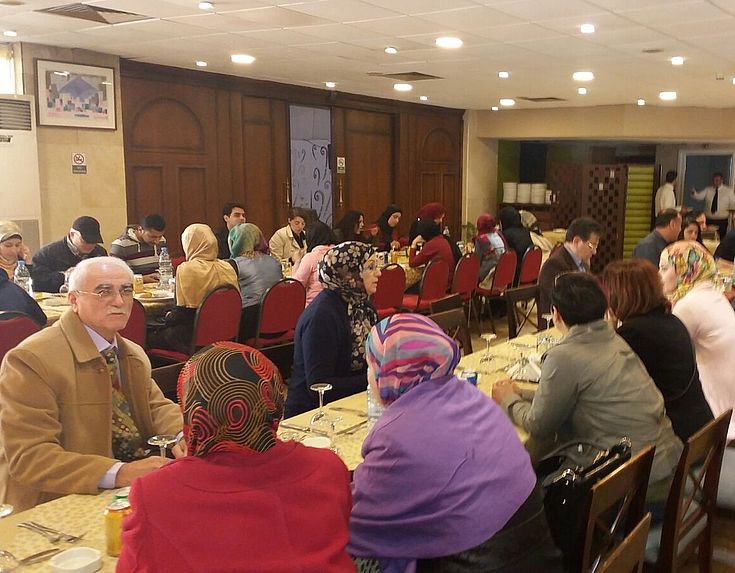What's happening at HSS?
Workshop on 'The Refugee Crisis and illegal Immigration', March 1 - 3, 2016 for Social Worker in the Akkar District / North Lebanon
Opening by Ms. Marie Younes, Ministry of Social Affairs
The workshop threw light on the social aspects suffered by the displaced and those motivated to illegal immigration. It was the second workshop of this kind It was the second workshop of this kind (see previous article, first workshops for social workers from North Lebanon).
Many topics were addressed during the three day workshop e.g. like
- What is the difference between immigration and illegal immigration?
- Discussing of the Geneva Refugee Convention
- What are the impacts (positive and negative) from legal / illegal immigration?
- What are the causes for migration (emigration/immigration)?
- The Syrian Refugee Crisis
- How to transfer awareness of the risk of illegal immigration to Syrians?
- Discussing the human responsibility and distribution of roles
- Social worker commitments and duties
Lecturer Dr. Pierre Felifi
As stated by the participants, social worker are committed to the basic ethical principles, as reflected in the International Code of Ethics (IFSW) and it is their belief that each human being is a person of unique value, whose dignity and right to life and liberty must be preserved. And it follows from this that there is a right to seek asylum from persecution. From this value stance, the social work profession accepts its share responsibility for responding to the distress of refugees and strives for the fullest possible involvement of refugees themselves in meeting their needs.
During the workshop these principles were discussed in reference to the current situation. Nowadays the enormous number of refugees world-wide and in Lebanon presents a problem and challenge for the international and national community, professionals, governments and voluntary agencies. It necessitates for example a screening process, which 'normally' takes place when and where an individual or a small number of people seek asylum. Mass influx of people may be treated different and it is not always clear whether people are fleeing from persecution of some kind or from hardship.
Lunch time
Social workers are required to address the problems facing refugees in their practice. The physical needs of refugees for food, clothing, health care and shelter have to be met, but for this social worker need to be provided with financial means or access to needed sources and/or benefits in kind to fulfill this requirements.
Many participants also pointed out that social worker must be more trained in terms of trauma of up-rootment, separation, loss, hardship and persecution as well as to acquire knowledge relating to cultural factors and the effect of xenophobia in the host community.
Furthermore many refugees are undertaking a dangerous journey towards Europe. They are willing to spend their last savings to pay human traffickers in hope of a better and secure life in Europe. However, they often do not have precise ideas and information about what awaits them on their journey or what conditions must be met to obtain asylum in the country of their destination. Rumors about fairytale conditions trigger people to leave. On the Internet, one can read about the dangerous escape to Germany sometimes like a trip to paradise. This "targeted misinformation" is partially spread by smugglers.
It is a human responsibility to help refugees in the receiving countries as well as to support the host communities, but also to shed light upon the dangers and risks of an escape into unknown. Social worker can prevent people from risking their lives, can protect them from disappointments, can help that families are not torn apart and endure further tragedy.
Social worker act as multiplier with direct and close contact to the most vulnerable people, they know their needs and hardships, but also their hopes and aspirations. Social worker are able to detect changes in the mood and morale early.
Therefore an additional aim of the workshop was to give social worker the knowledge about situation in Europe, about dangerous refugee routes and how Europe is responding to the refugee crisis.



